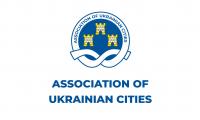What will Ukraine do in its de-occupied territories right after the Victory? With faith in Armed Forces of Ukraine, we must find the answer to this question before we win. And the Verkhovna Rada of Ukraine must expound respective decisions in the laws that will determine the path/way of Ukrainian recovery.
The latest information is that 1,877 Ukrainian localities are still occupied. The Decrees of the President of Ukraine introduced military administrations in 169 territorial communities, while powers of local governments were delegated to 136 military administrations.
So when exactly should local self-government be restored in the de-occupied territories?
Why is this question important?
The answer is that local self-government is democracy and mechanism of citizen participation in solving the issues of their life. All over the world, the state of local self-government determines the state of democracy in the country, they are interrelated.
Therefore, now, during our fight against russia, for independence, freedoms and democracy of the whole world, we need to define when and how we will restore the powers of local self-government in Ukraine.
Recently, experts, government officials, Members of Parliament started to use the terms "zones", "different conditions", and "transitional period" when talking about the restoration process of de-occupied territories.
These definitions are used to describe different terms to hold local elections in different territorial communities, to identify zones in territories depending on the duration of their occupation.
Transitional period is proposed for the de-occupied territories, during which rights of citizens will be limited for one, three, five years... This transitional period will delay the restoration of local self-government, postpone local elections.
For what? What will the state do in these communities during the "transitional" period?
And who will do this on behalf of the state?
Obviously, activities should be carried out simultaneously in three directions: ensuring security – demining, cleaning buildings and land plots; fight against collaborators – bringing to justice persons who were engaged in anti-Ukrainian activities, helped the aggressor; creating conditions for life – reconstruction of buildings and infrastructure, organization of work to provide vital services to residents and development of community restoration projects.
The territories will be cleared of weapons, mines, and dangerous substances by units of the Armed Forces of Ukraine, special units – they do it immediately after the territories are liberated.
The prosecution of collaborators and traitors is carried out by the units of the SSU and the prosecutor's office. To realize these goals, the Parliament adopted a number of necessary laws already after the full-scale invasion.
Creating living conditions for residents today and shaping future recovery is the mandate of local self-government.
With the use of a transition period or zoning, local elections in certain communities will be postponed for some time, and the functions of local self-government will be performed by a military or military-civilian administration.
In such a case, will the heads of administrations be able to take effective decisions without the participation of community residents on urban development, planning, arranging spaces, providing residents with public, educational, medical services and cultural development?
Undoubtedly, there can be no effective recovery and even reconstruction without the participation of residents, who all-round the democratic world exercise their rights through local self-government.
There is evidence of this today and in the past.
By the decree of the President of Ukraine No. 123/2015 dated 05.03.2015, military-civilian administrations were created and local elections were not held before the full-scale invasion in Avdiivka, Krasnohorivka (since 2021, Mariinka city military-civilian administration), Marinka in the Donetsk region, in Triokhizbenka, Kriakivtsi, Lobacheve, Lopaskyne, Orikhove-Donetske, Novotoshkivske and Zholobok with Krymskyi (since 2021, Hirske city military-civilian administration), Troitsk and Novozvanivtsi (since 2021, Popasna military-civilian administration) in the Luhansk region.
Since 2015, these communities have remained without reconstruction, development and investments, while the conditions for holding local elections have not been created there.
Along with this, there are examples of communities in which elections were held in October (November) 2015 after the temporary introduction of the military-civilian administrations. These include Vuhledar and Mariupol in the Donetsk region, Rubizhne, Lysychansk, Novodruzhesk and Privillia in the Luhansk region.
In these communities, after the restoration of local self-government, life has revived, infrastructure has been restored, private investments and donor funds have been attracted, and residents have returned.
The example of communities that were de-occupied last year shows that the communities without local self-government do not develop. Even when qualified specialists, local by origin, work in the military administrations of localities, the administrations do not ensure what is happening in communities with working councils and executive committees.
The difference between communities and the level of their recovery can be seen just by moving from one community to another one. Signs are not needed – presence/absence of street lighting, hidden destruction, restored/still destroyed infrastructure – everything is visible to the unaided eye.
These is vivid, visible evidence that no one can be made happy without themselves, a community cannot be arranged without its residents.
The task of the state is not to cement the ruin with a transitional period, but to involve residents as quickly as possible to participate in the restoration of their cities, towns and villages. Involve not only in public works, but also in management. Therefore, self-government must be restored as soon as possible.
Proponents of the "transitional period", separate zones without local self-government, do not answer the question: what will happen in communities at this time? Why will the military and law enforcement officers not be able to perform their work in parallel with the reconstruction and restoration of communities?
As there is not a single example of the success of military administrations (or military-civilian administrations) of localities in relation to neighboring communities with functioning municipalities. Moreover, everyone recognizes that "good governance at the local level is the basis of Ukraine's stability in countering russian aggression", as stated in the materials of the meetings held within the framework of the Council of Europe Program "Strengthening Good Democratic Governance and Resilience in Ukraine" at the end of April this year.
When our territories were captured by the russians, it was clear why they needed a transition period – the occupiers replaced Ukrainian documents with their own papers, confiscated property, starved the captured people and forced the civilians to support them.
But the community residents and the municipal authorities fiercely resisted the occupiers. Have we forgotten the large-scale pro-Ukrainian rallies in the cities of Kherson, Kakhovka, Henichesk, Nova Kakhovka, Tavriisk, Beryslav, Hola Prystan, Oleshky, Melitopol, Berdiansk, Enerhodar and others.
In the settlements and village communities of Chaplynka, Syvaske, Chervona Poliana, Novi Haii, Verkhnii Rohachyk, Nizhni Sirohozy and many others.
Have we forgotten how school principals resigned en masse and teachers refused to cooperate with the occupiers in Melitopol and Berdiansk?
It is unclear why the Ukrainian authorities on the Ukrainian land have time to start - start! - restoration of the system of providing residents with priority services and rights guaranteed by the Constitution of Ukraine.
Let me remind you that the residents of Ukraine receive all basic services precisely through local self-government: an administrative service center, hospital, school, kindergarten, vocational school, heating, electricity, even a cemetery... We have all Ukrainian documents.
No one plans to accept/exchange papers issued by the occupier?! Databases and registers have been preserved, all bodies from the occupied territories are functioning, even the Crimean Prosecutor's Office.
The de-occupied communities will be most in need of reconstruction and restoration, as well as the maximum attraction of funds. And this is possible precisely by local self-government, and not by military administrations.
Investors and donors do not work with the military on long-term projects. A recent example is the Memorandum concerning assistance in the reconstruction of Kherson from the International Cooperation Agency of the Association of Netherlands Municipalities (VNG International) that was signed by the international partners with the military administration exclusively on the condition of the participation of the Association of Ukrainian Cities as a representative of local self-government.
The need for local self-government to reconstruct and restore communities was recognized even after WWII. Countries that are today our reliable partners in Europe held local elections immediately after ensuring the safety of the residents. Local elections were held in Great Britain in 1945, in Germany in 1946, when the territory was still under the control of the USA, France and Great Britain.
Without local self-government, recovery is impossible, communities will be forced to be in the "waiting" mode. And we know that there is no state of rest in life: there is either development or degradation.
I am sure that the entire democratic world is for the development of Ukraine, communities and citizens. For this, after our Victory, we need to restore local self-government on the all territory of Ukraine as soon as possible.
Oksana Prodan, Adviser to the Chairman of the Association of Ukrainian Cities, Member of the Verkhovna Rada of Ukraine of the VII and VIII convocations













